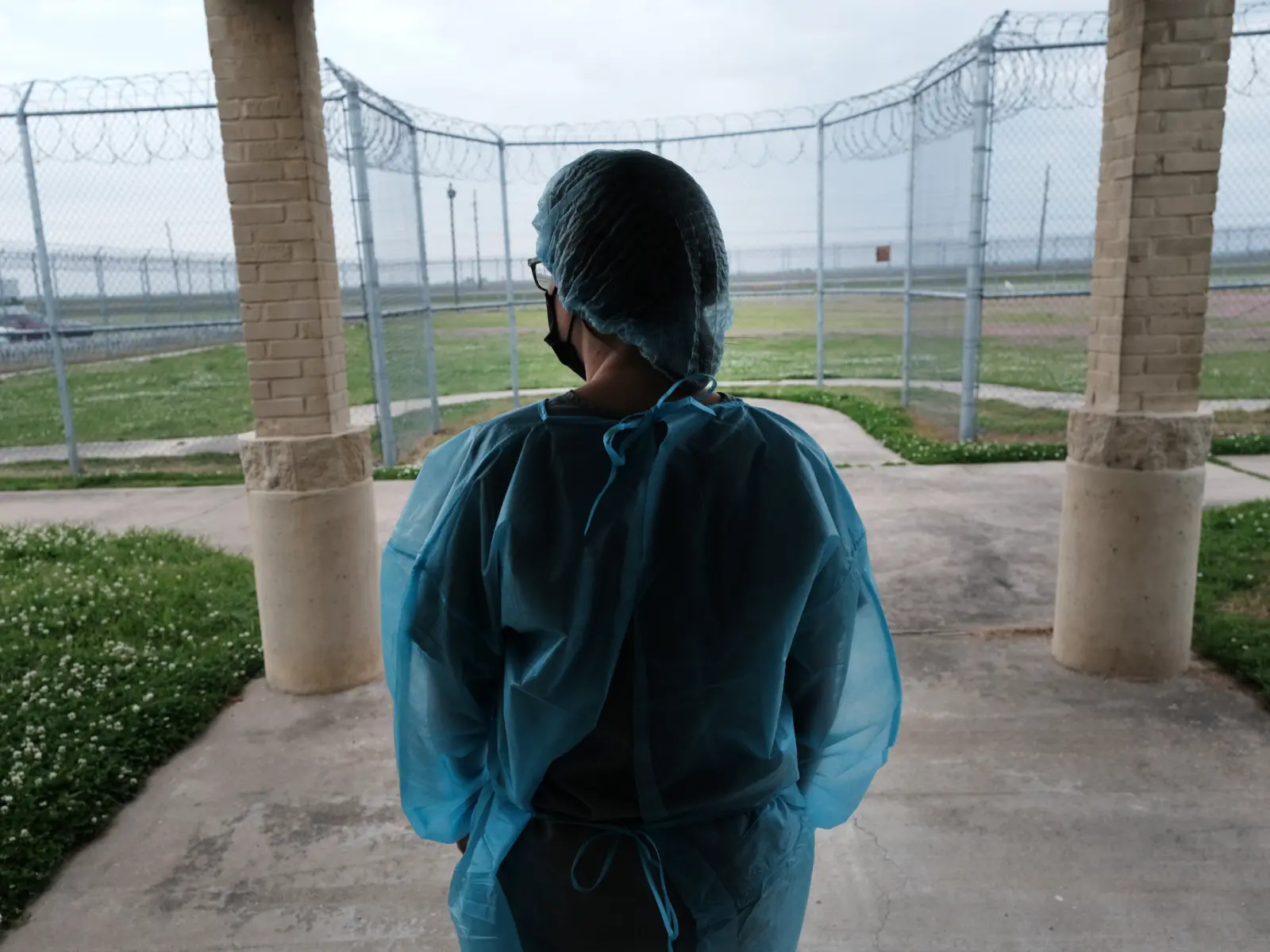Advancing policy change at the intersection of criminal justice and poverty is complex, and often hindered by a lack of evidence about what interventions do and do not actually work. That is why Arnold Ventures (AV) is partnering with several organizations that focus on using rigorous research methods to build the evidence base.
This includes the Abdul Latif Jameel Poverty Action Lab (J‑PAL North America) at the Massachusetts Institute of Technology, a research center working to reduce poverty by ensuring that policy is informed by strong evidence. Drawing on a network of more than 900 researchers at universities around the world, J‑PAL conducts randomized impact evaluations to answer critical questions in the fight against poverty. As part of a new initiative supported by AV, J‑PAL North America will act as a “matchmaker” between qualified criminal justice researchers and governments, nonprofits, and foundations that want to put the effectiveness of their promising criminal justice programs to the test.
“J‑PAL is a leader in facilitating randomized controlled trials across many policy areas, and we are excited to help them scale up their work related to crime and criminal justice policy,” says Jennifer Doleac, executive vice president of criminal justice at AV. “By talking with policymakers and practitioners who have innovative ideas, matching them with top-notch research partners, and then supporting rigorous impact evaluations, J‑PAL will help us figure out which promising ideas are actually effective in practice.”
We spoke to Vincent Quan, co-executive director of J‑PAL North America, about the importance of building evidence on the intersections between criminal justice and poverty and how the organization’s new initiative will create high-quality research that, in turn, can lead to more effective policy interventions and improved outcomes for people, families, and communities.
This interview has been edited for clarity.

Arnold Ventures
Why is it important to develop evidence on criminal justice interventions?

Vincent Quan
If we hope to improve the lives of justice-involved people or those experiencing poverty, and advance community safety, we have a moral imperative to rigorously test whether the programs we are using are actually making a difference. Unfortunately, too many policy decisions today are based on anecdotes, trends, or what’s politically marketable. We want to apply the same level of rigor that we see in the medical sciences and clinical trials to questions of social policy. Given that a lot of public money funds these programs, state and local governments have a financial responsibility to ensure they are effective. This also ties into our commitment to racial equity by generating evidence to inform policies that reduce racial disparities in the criminal justice system. Prioritizing solutions that address structural racism and benefit marginalized populations ensures our efforts are both effective and equitable. We must commit to a culture of continuous learning. There’s not one silver bullet in the realm of social policy generally, or criminal justice reform more specifically. It’s likely going to require multiple proven strategies and also learning what does not work alongside what does work. Fortunately, leaders across the political spectrum agree that our justice system needs reform. We need to create a playbook of strategies where each piece of research builds on the previous to develop a holistic understanding of what works for a variety of scenarios and populations. By focusing on both effectiveness and equity, and supporting initiatives that address structural racism, we can promote a fairer and more effective criminal justice system.

Arnold Ventures
How has your personal and professional path led you to J‑PAL and particularly to working on criminal justice issues?

Vincent Quan
I have a lot of experience working on criminal justice issues. I previously worked at the Prison Law Office, a litigation office based in California that focuses on improving conditions of confinement for people in prison, including issues around health care, mental health care, and disability accommodations. I also spent time at the Legal Aid Society in New York City, which functions as the public defender’s office across the five boroughs, where I was a criminal defense investigator helping to identify evidence to support our low-income clients. Both organizations are incredible leaders in the field of criminal justice reform, and I am incredibly proud of the advocacy work I did there. At the same time, I recognized how all too often my clients were trapped by flawed criminal justice policies and encumbered by systemic racism, which greatly limited their ability to succeed in society no matter how hard I worked. This prompted me to shift to policy work. I was interested in seeing how we could get ahead of the problem and create better policies that reduce the disparities related to the criminal justice system. I also got really interested in the field of evidence-based policy. I wanted to know which strategies would go beyond politics and anecdote to make a lasting difference for individuals and communities that came into contact with the US criminal justice system. More personally, I often asked whether my work was making a long-term difference for the clients I worked hard to serve against the backdrop of a highly flawed justice system. I wanted to see whether rigorous research could help us tackle the seemingly intractable challenges of our criminal justice system.

Arnold Ventures
What are the problems that J‑PAL is trying to address?

Vincent Quan
There are more than 5 million people under supervision by the justice system, and a disproportionate number are people of color experiencing poverty. In general, we find that folks from communities experiencing poverty are far more likely to come into contact with the justice system, and at much earlier ages. When you have been involved in the justice system, that also takes away opportunities to support yourself financially, whether it’s the criminal record that prevents you from getting a job, the stigma that’s attached to justice involvement, or not being able to develop skills while you’re locked up. This becomes an intergenerational problem. When parents are incarcerated, there’s less income in those families to support kids, and those kids are more likely to become justice-involved themselves. If we are really serious about tackling the issue of poverty and inequality, we have to think about criminal justice reform.

Arnold Ventures
Where are the gaps in the research record on this issue?

Vincent Quan
That’s one thing that we’re hoping to learn more about as part of this initiative. We’re planning to conduct a review of what the current research says about what is and is not effective as it relates to the criminal justice system and improving community safety. From there, we’ll map out an agenda of the most important research questions. In particular, we want to understand the most effective strategies to reduce disparities in the court system. For instance, a lot of low-income people don’t appear for their court dates, not necessarily because they don’t want to but because they don’t realize that they have one, and that ends up snowballing into a much larger problem. There are also important questions about policing. That area has become salient in popular discussion over the past couple of years, but there is limited evidence about what actually works. We also have questions about alternatives to incarceration, strategies for restorative justice, and ways to help reduce recidivism among folks who are exiting the criminal justice system. Across all these areas, many open questions remain on how to effectively reduce racial disparities related to the criminal justice system. Across all these areas, there remain many open questions on how to effectively racial disparities related to the criminal justice system. We have a pretty unique opportunity here. There is rare bipartisan consensus on researching and addressing these long-standing challenges, and we want to seize on that opportunity.

Arnold Ventures
How will this new partnership with AV help develop the evidence base?

Vincent Quan
We are planning to apply the J‑PAL model to the criminal justice space. We have about 70 researchers in our network who have demonstrated interest and expertise on criminal justice questions. We are planning to support those researchers — in addition to growing our research network — and the government partners that they’re working with to spur new randomized evaluations that look at issues including youth and community safety, policing, legal representation, and recidivism. We are using a multi-stage process. At the beginning, we will do the literature review and white paper that helps us set the overall research agenda. Then we’re going to organize a convening that brings together researchers, policymakers, and practitioners who are focused on this field. We will serve as a matchmaker to build critical partnerships between governments and nonprofits with promising ideas with expert researchers in our network. Over the next couple of years, we plan to run requests for proposals, inviting researchers in our network with promising ideas for studies to apply for funding and research management support to get evaluations off the ground. Over time, we want to train more researchers within our network on how to effectively study questions about the criminal justice system with randomized controlled trials. And then finally, we are going to disseminate the study results. We don’t want the results sitting behind a paywall or on a shelf collecting dust. We want to make sure that they are getting out into the world so that policymakers are able to use this information to make more informed decisions.

Arnold Ventures
Are there particular types of criminal justice policies and solutions you are seeking to examine?

Vincent Quan
We’re especially interested in testing violence prevention strategies in communities that are grappling with high levels of violence, which is currently a focus for a lot of cities. One intervention that we have evaluated in the past is cognitive-behavioral therapy (CBT) programs aimed at young people at risk of committing or being victimized by violent crime. Violent crime among young people often happens impulsively, contrary to the misconception that gangs drive it intentionally. CBT interventions help young people rethink their approach to conflict in a way that’s slower and less impulsive. We would be interested in testing other violence prevention strategies in communities across the country. Another example is working with judges to see whether their sentencing decisions can be better informed. We see racial disparities in sentencing decisions between people of color and white people, and we want to learn whether providing informational interventions for judges to hold them more accountable could change that. Another area we find interesting is police alternatives. We recently funded a study that focused on providing people with information — for example, on calling a mental health hotline during a crisis instead of calling police — and seeing whether that leads people to rely less on police for nonviolent crimes. In general, we want to crowdsource information from experts about the most important interventions to prioritize. We also know there are many promising ideas that we haven’t considered yet, so we are excited to start getting proposals.

Arnold Ventures
How do you hope your work will contribute to policymaking decisions?

Vincent Quan
At the end of the day, we measure the success of this initiative based on what actually leads to policy change. We want this research to be used by policymakers so they can make smart, evidence-based decisions on issues related to the criminal justice system. At J‑PAL, we’re looking at this in a couple of ways. We want to see the research we support being cited in more policy discussions, whether that’s executive orders by mayors and governors or laws enacted by legislatures. We’re also interested in saturating the public discourse with evidence-based ideas. We want to get rigorously researched programs into the public imagination of what’s possible. That’s why we’re very excited for this partnership with AV. There are so many challenges in the criminal justice system, but also so many opportunities for us to make a difference, and there is a major appetite among policymakers and the general public today to make the system fairer and safer.




















